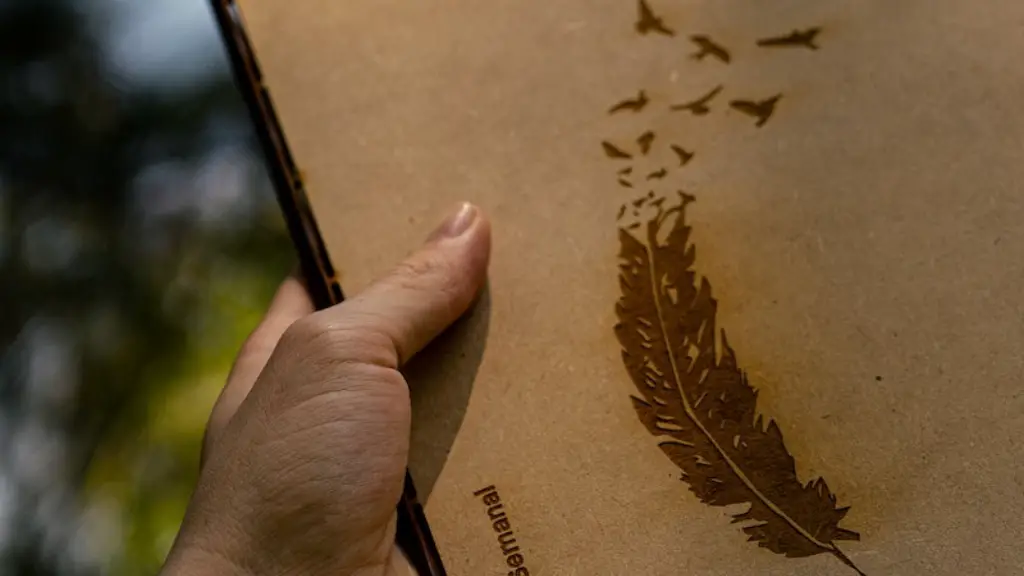Background Information
Nursery rhymes are short, often rhyming stories designed for children. They often start off with a simple repeating phrase which is used to introduce the story. Most nursery rhymes were written between the 17th and 19th centuries and have been passed down orally through generations ever since. The themes and characters found in these stories often fit into more traditional story structures, as with fairytales and fantasy stories, making them popular with children.
The origin of nursery rhymes is unknown. Some people have suggested that they originated as traditional folk songs, others believe they were songs written by adults to entertain children, while still others suggest they were simply made up by the children themselves. It is impossible to say definitively, but whatever their origin, nursery rhymes have been a part of our culture for centuries.
Types of Nursery Rhymes
Nursery rhymes come in a variety of forms. Some are short and simple, with one or two lines, while others are longer and more complex. Some are written in elaborate rhyming couplets, while others are meant to be sung or chanted. Nursery rhymes are often designed to be catchy and entertaining, with a repeating phrase or a simple rhyme used to capture the attention and engagement of children.
Are Nursery Rhymes Poetry?
The question of whether nursery rhymes are poetry is a subject of debate. Most people agree that they are a form of poetry, but there are differing opinions as to whether they should be considered as true poetry.
Some argue that nursery rhymes are not real poetry because they are too simple and don’t have enough substance to them. They may lack the complex imagery and symbolism which characterise true poetry. Others believe that nursery rhymes do have poetic qualities. They argue that nursery rhymes should be appreciated for their use of rhyme, rhythm and alliteration, as many true poets do.
The Role of Nursery Rhymes
It’s clear that nursery rhymes have a purpose in our society, as evidenced by how popular they are with children. In addition to being entertaining, nursery rhymes can also be used to teach children about important topics, such as counting or the alphabet. For example, the popular nursery rhyme ‘One-Two-Buckle-My-Shoe’ is designed to teach young children how to count to three.
Nursery rhymes can also be used to teach children about social or cultural issues. For example, ‘Humpty Dumpty’ was traditionally used to teach children about the dangers of sitting on walls. Similarly, ‘The Grand Old Duke of York’ can be used to illustrate the importance of not giving in to temptation.
Benefits of Nursery Rhymes
In addition to being entertaining and educational, nursery rhymes can also be beneficial for children’s development. Studies have found that reading or singing nursery rhymes can help improve a child’s memory, language and communication skills. Furthermore, nursery rhymes can also help to introduce children to the idea of rhymes, which can help to improve their writing skills.
Conclusion
Nursery rhymes are an important part of our culture and children’s development. While there is some debate as to whether they should be classified as poetry, it is clear that they fulfill an important role in our society. They can be used to entertain and educate children, and enhance their development.
More Perspectives
Folktales
Nursery rhymes are a form of folktale, and therefore, to some degree, a form of literature. It is argued that nursery rhymes, which are often presented in the form of a story, may have had a traditional origin before being adopted by the English-speaking world.
Despite being more simple compared to more complex forms of literature, nursery rhymes are still considered as part of this literary genre. Many folktale traditions have been passed down through generations. It could be argued then, that nursery rhymes also fit this description, having been passed down from parents to children for hundreds of years.
Children’s Literature
Nursery rhymes are also viewed as a form of children’s literature. As such, they can be used to introduce children to the world of literature. This can be an important milestone in their education; familiarizing children with stories, rhymes, and simple language structures.
Nursery rhymes are often the first form of literature that children are exposed to. As such, they can have a surprisingly powerful effect, pushing children to think more critically, and encouraging them to explore other forms of literature.
Psychological Benefits
Research has shown that nursery rhymes can have great psychological benefits for children. Nursery rhymes help children to learn and process language, as well as concepts such as counting and colors. The rhythm and complexity of language in nursery rhymes can also be beneficial for helping a child to memorize and retain information.
Furthermore, nursery rhymes can help children to develop social and emotional skills. The characters and stories found in nursery rhymes can help children to understand their place in the world and understand emotions better.
Rhyme and Poetry
Nursery rhymes often use rhyme, as well as rhythm and other poetic techniques. By exposing children to language structures and devices such as these, nursery rhymes can help them to become better readers and writers.
Rhythm can be particularly effective in helping children learn; they are often more willing to engage with and remember stories if they have been presented in rhyme. It is argued then, that nursery rhymes can encourage children to enjoy and appreciate poetry.
Recitation
Another important aspect of nursery rhymes is that many of them are designed to be recited or performed. This can be a great way to engage children, as well as develop their language skills.
Importantly, nursery rhymes can be used to engage multiple generations of children, as they have been passed down throughout history. This practice can help to cultivate a sense of community and togetherness, as the stories are shared across the generations.


